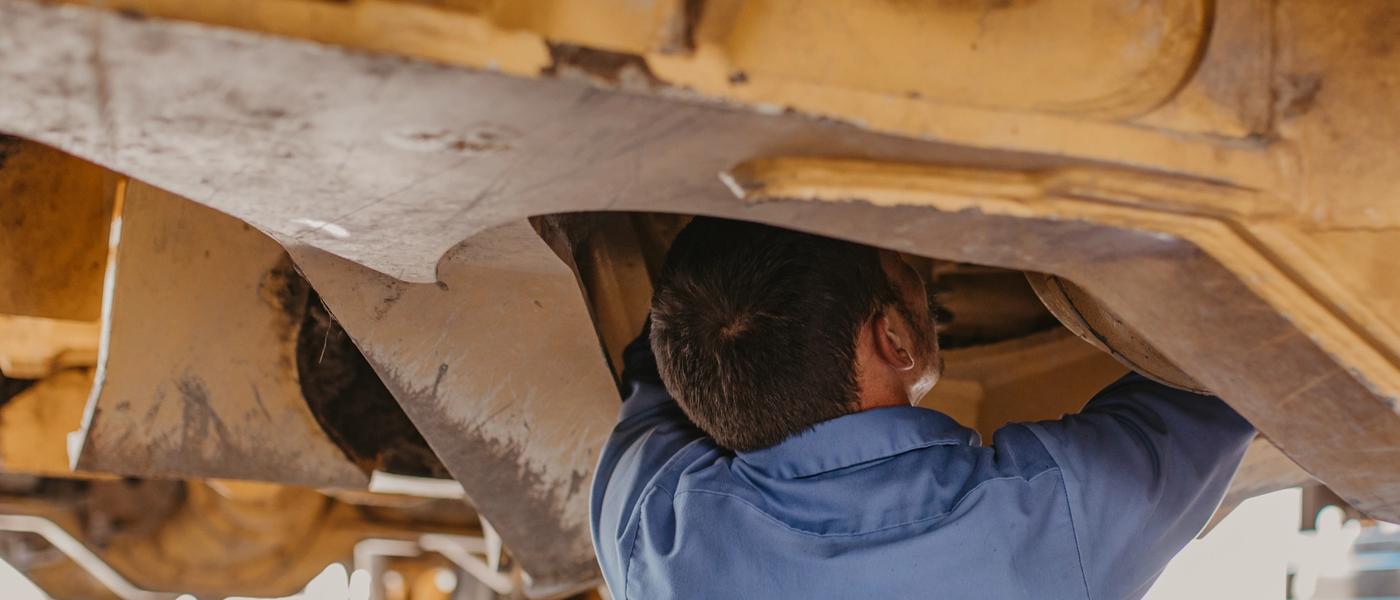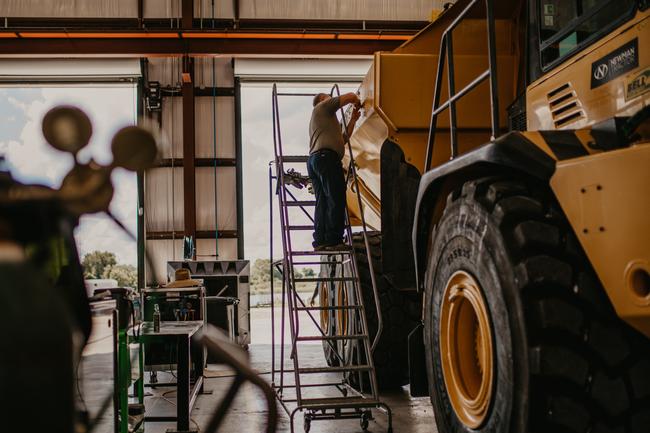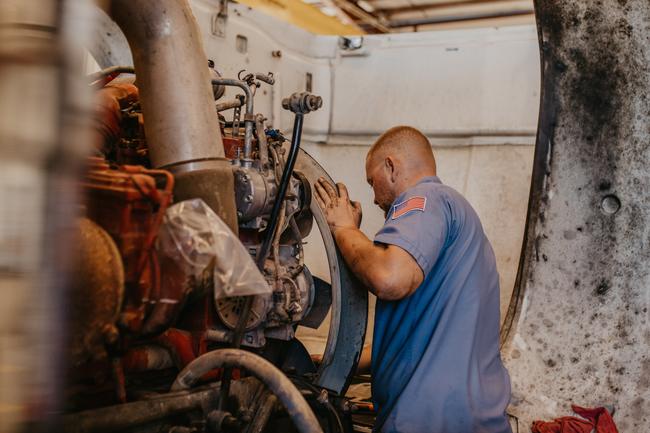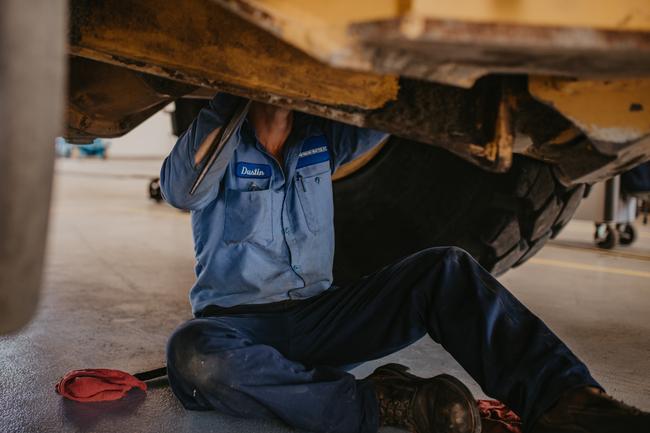Maximizing Lifespan and Efficiency: The Case for Regular Heavy Equipment Maintenance
- Construction Management
- Equipment Tutorials

Heavy equipment is more than just machinery—it's the lifeblood of your business. The immense capital invested in excavators, skid steers, bulldozers, and other specialized equipment emphasizes their ability and importance in meeting deadlines, maintaining safety standards, and ensuring project success.
However, owning and operating this equipment comes with its responsibilities, like preventative maintenance.
It's easy to overlook the subtle signs of wear and tear in the day-to-day rush to meet project timelines. Yet, neglecting preventative maintenance is a long-term gamble that can result in costly breakdowns, compromised safety, voided warranties, and project delays.
So, let’s talk about the importance of regular upkeep to maximize the lifespan and efficiency of your heavy machinery and meet essential warranty conditions.
The Fundamentals of Preventative Maintenance
When it comes to heavy machinery—for construction, roadwork, earth-moving, or landscaping—the term 'preventative maintenance' takes on a critical meaning. Unlike ordinary vehicles or equipment, heavy machinery's size, complexity, and cost make it a substantial investment for any business.
Preventative maintenance is not just about extending the lifespan of your equipment; it’s about safeguarding your investment and ensuring that projects run smoothly and safely.

Common Preventative Maintenance Tasks
While each type of heavy machinery has unique maintenance needs, specific tasks are almost universally required to keep your equipment in peak condition. Understanding these common preventative maintenance activities is vital for avoiding costly downtimes and ensuring your equipment runs smoothly. Below, we outline these tasks and briefly explain why each is essential.
- Oil and Fluid Changes: Like any vehicle, your heavy machinery requires regular oil changes. However, given these machines' workload, keeping an eye on hydraulic fluids, coolant, and windshield wiper fluid is essential.
- Oil Sampling: This is one of the easiest things to forget and can make or break a warranty claim. Staying current on these and regular maintenance is just as necessary to prove you care for your machine properly.
- Winterize: If you live in an area with harsh winters, extend the lifespan of your machine (and its parts) by properly winterizing.
- Tire Rotations and Pressure Checks: For frequently mobile machinery, like graders or bulldozers, tire rotations, and pressure checks are necessary to ensure even wear and tear and optimize fuel efficiency. Improper track tension can cause premature wear to rubber tracks and tracks coming off.
“Temperatures also play a factor in track tension [too], which most people don’t think of.” - Leslie, Service Manager
- Belt Checks: Broken belts happen in heavy machinery, causing unexpected downtime. Regularly inspecting the belts for wear or damage can prevent catastrophic failure.
- Battery Checks and Electrical System Maintenance: Heavy machinery often operates in extreme conditions. Ensuring that the batteries and electrical systems are functioning correctly is crucial.
- Cleaning and Lubrication: Dust, grime, and exposure to the elements can cause quicker wear and tear. Routine cleaning and proper lubrication of moving parts can extend the life of your equipment.
- Software Updates: Modern machinery comes equipped with software to improve functionality and safety. Keeping this software up-to-date is often an overlooked but important maintenance task.
- Structural Inspections: Given the harsh operational conditions, structural elements like booms, outriggers, and other load-bearing components should be regularly inspected for cracks or other signs of stress.
- Brake System Maintenance: Given the size and weight of heavy machinery, maintaining the braking system is not just good practice; it’s a safety imperative.
- Air Filter Replacements: Clogged or dirty air filters can reduce engine efficiency and lead to other issues. Replacing them as needed is a simple but effective maintenance task.
Preventative maintenance is about creating a routine that becomes a part of your operational rhythm. By taking proactive steps to maintain your equipment, you're extending its lifespan, optimizing its performance, ensuring safety, and saving your business from costly downtime or repairs.

Direct Benefits of Regular Maintenance
Investing in preventative maintenance isn't just about avoiding problems; it's about creating tangible, long-lasting benefits that contribute to the efficiency and effectiveness of your operations. Here, we'll dive into the advantages you'll gain by integrating regular maintenance into your business practices.
Reduced Downtime
Every minute your equipment is down, you're bleeding resources and time—two things no project can afford to lose. Regular checks and timely interventions can flag issues before they become major problems, saving you hours or even days of downtime.
Operational Efficiency
Well-maintained machinery operates at peak performance whether it's fuel efficiency or the speed at which tasks get done, a well-oiled machine (literally and metaphorically) will outperform a neglected one every time.
Safety
A piece of heavy machinery is only as safe as it is well-maintained. From brake systems to hydraulic controls, ensuring that every part is in top condition is crucial for the safety of your operators and anyone else on the job site.
Cost Savings
While preventative maintenance requires an upfront investment, it saves you money in the long run. Think of it as a small, regular deposit in a 'savings account' that helps you avoid big, unexpected 'withdrawals' for emergency repairs or replacements.
Compliance and Warranty
This is crucial. Regular maintenance isn't just a good idea; it's often a requirement to stay compliant with safety regulations and warranty terms. Keeping detailed records of maintenance tasks can be a lifesaver during audits or if you need to claim a warranty. We’ll talk more about this later.
Prolonged Equipment Lifespan
One of the most direct benefits of preventative maintenance is the extension of your equipment's lifespan. Heavy machinery is a significant investment. Extending the usable life of this machinery is, therefore, a top priority. Regular check-ups can spot wear and tear that, if left unaddressed, could result in system failures and premature equipment retirement. Simple tasks like oil changes and air filter replacements can go a long way in ensuring your investment pays off for years to come.
Enhanced Efficiency and Productivity
In competitive industries, time is often as valuable as money. A machine operating below its capability can slow down your entire project timeline. But equipment in top condition can make your operations faster, more efficient, and ultimately, more profitable.
From quicker excavations to more precise material handling, well-maintained machinery is key to hitting and exceeding your project goals. Preventative maintenance ensures that every component works as it should, reducing the likelihood of downtime and improving overall productivity.
Reduced Long-term Repair Costs
Minor issues can quickly escalate into significant problems if left unattended. For instance, a minor hydraulic leak could lead to a complete system failure if not addressed promptly. The cost of fixing a total system failure will exceed that of repairing a simple leak. Preventative maintenance allows you to catch these minor issues before they become major—and far more expensive—problems. Routine inspection can also help you plan and budget for parts that are wearing out but have not yet failed, making financial planning more predictable.

Maintenance and Warranty: An Essential Connection
A warranty can provide a significant safety net for your heavy machinery investment. However, knowing that having a warranty doesn't mean you can skip regular maintenance is important. In fact, keeping up with consistent and proper maintenance is often required to keep your warranty valid.
Here's why you need to maintain your machines as part of a warranty:
Preventative Maintenance as a Warranty Condition
Many warranties have clauses that require regular maintenance to remain valid. This isn't a coincidence or a mere suggestion; manufacturers know that well-maintained machinery is less likely to fail. Ignoring preventative maintenance not only increases the chances of equipment breakdown but also risks voiding your warranty. It's a double whammy—your machinery breaks down, and the warranty that should have covered the repairs is no longer valid.
Consequences of Neglect
Let's say a critical component of your equipment fails, and you think, "It's under warranty; I'll be covered." But, upon reviewing your maintenance records, it becomes clear that the necessary preventative measures were not taken. The warranty provider can deny your claim, leaving you to cover the costly repairs or replacements out-of-pocket. This scenario can particularly damage businesses operating on thin margins or tight schedules.
The Importance of Maintenance Records
Keeping meticulous records of all maintenance activities isn't just good practice—it's often necessary for warranty claims. Should an issue arise, these records prove that you've met the warranty conditions, maximizing the chances of a successful claim. Log everything from oil changes to parts replacements, and keep receipts for all work done. Most modern equipment has digital tracking systems to simplify this process, but a well-kept manual log can be equally effective.
Seven Tips for Implementing a Preventative Maintenance Schedule
Understanding the value of preventative maintenance is only half the battle. The next step is implementing a reliable and effective maintenance routine. Below are some practical tips to help you kickstart your program and keep your heavy machinery in optimal working condition.
- Start with the Manufacturer's Guidelines: Each piece of equipment has a manual outlining recommended maintenance activities and their schedules. This should be your starting point. Familiarize yourself with these recommendations and adhere to them as closely as possible.
- Create a Maintenance Calendar: With modern technology, keeping track of maintenance schedules is easier than ever. Use a digital calendar or specialized software to set reminders for upcoming tasks like oil changes, tire rotations, and other essential checks. Share this calendar with key team members so everyone is aligned.
- Conduct Regular Inspections: In addition to scheduled tasks, implement a routine of daily or weekly inspections. Visual checks for fluid levels, tire pressure, and belt integrity can catch minor issues before they escalate into major problems.
- Leverage Technology: Modern machinery often comes equipped with sensors and diagnostics to alert you to potential issues. Make use of this technology to stay ahead of maintenance needs.
- Use Qualified Professionals for Specialized Tasks: Not all maintenance can be done in-house. For those your team can handle, be sure to have any necessary service filters or kids on hand. For tasks that require specialized knowledge, like hydraulic system maintenance or electrical troubleshooting, enlist the services of qualified professionals. Doing so is essential for the health of your equipment and often crucial for maintaining your warranty.
- Record Everything: We can't emphasize the importance of meticulous records. Document each maintenance activity, no matter how minor, along with dates and the names of the technicians who performed the work. These records are invaluable for warranty claims and identifying recurring issues that need more in-depth attention.
- Regularly Review and Update the Maintenance Plan: As your fleet grows or the nature of your projects change, your maintenance needs will evolve. Make it a habit to review your maintenance plan periodically and make adjustments as needed.
By following these tips, businesses can develop a robust preventative maintenance schedule. This proactive approach will not only extend the life of your heavy machinery but also improve your operational efficiency and long-term financial health.

Final Thoughts on Maintaining Your Heavy Machinery
In the demanding industries of heavy civil, roadwork, landscaping, mining, and earth-moving, your equipment is your lifeline. Proper and consistent preventative maintenance isn't just a good practice; it's an investment in the long-term health and efficiency of your machinery—and by extension, your business. From extending the lifespan of your equipment and improving operational efficiency to saving on long-term repair costs and even keeping your warranty intact, the benefits are numerous and impactful.
Don't underestimate the value of a well-maintained machine. Start implementing a preventative maintenance schedule today. Your equipment, your team, and your bottom line will thank you.
